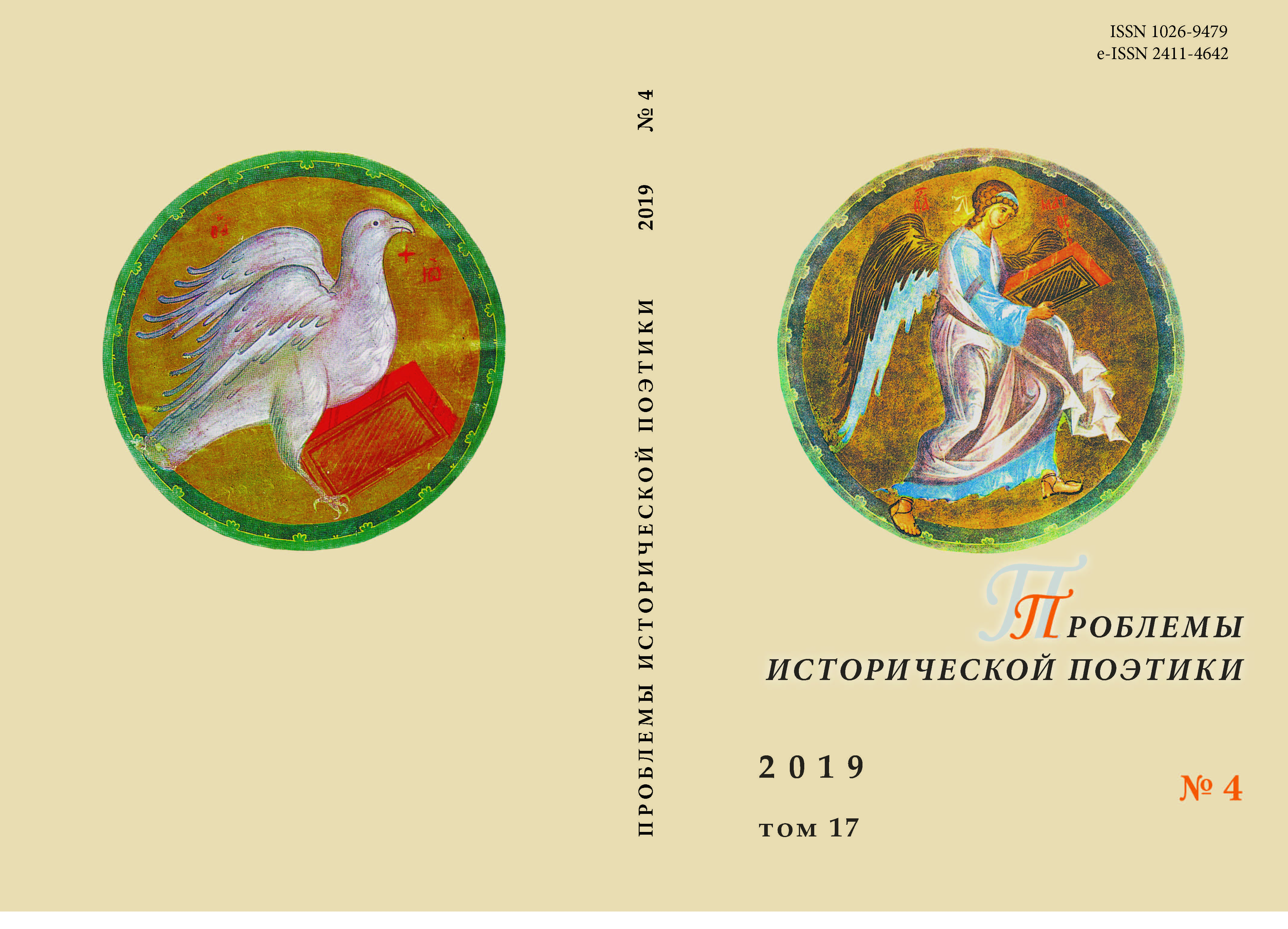ПОЭТОЛОГИЯ И АКСИОЛОГИЯ Я. П. ПОЛОНСКОГО 1860–1880-Х ГОДОВ
POETOLOGY AND AXIOLOGY OF YAKOV POLONSKY IN THE 1860S—1880S
Author(s): Tatiana FedoseevaSubject(s): Studies of Literature, Russian Literature, Eastern Orthodoxy, Philology
Published by: Петрозаводский государственный университет
Keywords: the lyrics of Ya. P. Polonsky;creative personality; religious consciousness; orthodox culture; poetics; biblical subject; motif; image; value world of the author;
Summary/Abstract: The article analyses the lyrics of Polonsky’s of the 1860s—1890s from the viewpoint of an artistic consciousness of the author found in his writings. The biographic context applied in the research permits to comment on formation of the value world of the intended poet against the background of the provincial noble culture of the 1820s—1830s. The poet’s writings chosen for the analysis are grouped into two formal content-based categories. The first one have the lyrics that express the contradiction felt by the poet between a “naïve” belief nurtured in his childhood and the Russian atheism of the second half of the 19th Century (“The Mad”, “To One of the Tired”, “Where a cliffy sea cost is...”, “In Memory of V. M. Garshin”, “Stanzas”). At a motif and image level of the analysis in the first group of poems there is distinguished an image of an idealist hero characterized by the motifs of emotional exhaustion, disease, loneliness. A religious aspect of the poet’s consciousness is expressed in allusions to the image of a Biblical prophet rejected by a musty society. There is seen “humanization” of the motifs of Christian love and transfiguration. The second category contains the poems pointing at the truth of a canonic orthodoxy affirmed by the poet (“A dying man”, “At the Temple”, “The Vesper-Bell”, “The Golden Calf”, “The 15th of July of 1888”). The generalized-parabolic character of the given writings is asserted. The motifs of penitence, salvation of the soul, prayers, as well as the topos of an orthodox temple and symbols of the vesper-bell are revealed. The analysis of the poems of the second category allows making a conclusion about formation in the poet’s lyrics of the idea of the orthodox historiosophy, that is, of the dependence of social existence of society on its spiritual condition. This idea is related to the motifs of worshiping the Golden Calf, the Doomsday, and the Revelation. The conducted research has found out the determinacy of the poet’s artistic consciousness by an outside influence and its conditionality by the dynamics of his inner, spiritual movement. In an axiological aspect the selected writings by Polonsky disclose the rootedness of the artistic consciousness of the poet in Russian orthodox tradition.
Journal: Проблемы исторической поэтики
- Issue Year: 17/2019
- Issue No: 4
- Page Range: 149-172
- Page Count: 24
- Language: English, Russian

